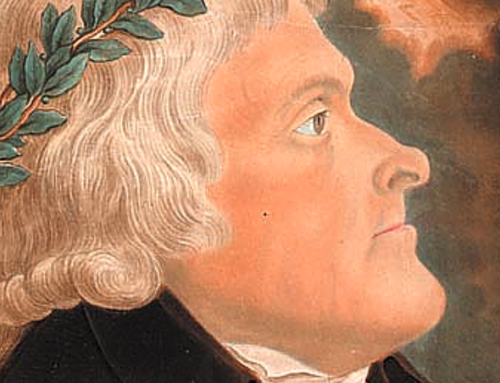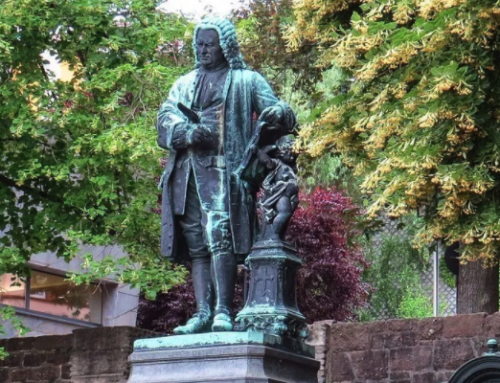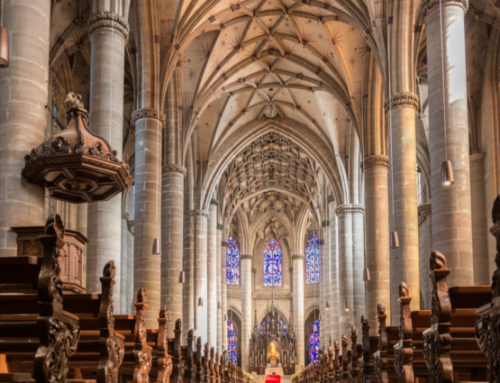“Sing in me, Muse, and through me tell the story of that man skilled in all ways of contending, the wanderer, harried for years on end, after he plundered the stronghold on the proud height of Troy.”
Long ago I launched my ship in pursuit of the true, the good, and the beautiful. Often, I seemed to be crashing into the rock of Clint Eastwood’s the good, the bad, and the ugly.
In the last few years I have had occasion to reread Homer’s Odyssey. I have also had the pleasure of listening to it read aloud, a similar experience perhaps to audiences for several hundred years after Homer’s time. I have enhanced my time with Homer by reading Eva Brann’s Homeric Moments, as a companion to the Odyssey.
In these works, and in my life, I have seen that life can be thrilling, fulfilling, and heartbreaking. It can be filled with the joys of love, family, and fruitful career. Sometimes this joy turns into angst as we wrestle with the challenges of job loss, family breakup, and debt.
Occasionally, I have wished to join the land of the Lotus-eaters: those who don’t face reality and seek escape. I have more than once found myself imprisoned by a Cyclops, an opponent of great strength and narrow vision.
With some poetic license, I will admit that I found myself in a relationship that looked to others as ideal, with a Calypso of alluring beauty, and yet to grow and thrive, like Odysseus, I had to seek home.
More than once I told my story to friendly Phaecians, who, moved by my weeping for lost friends and homesickness, offered to take me on a fast ship to the home that is my Ithaca.
And after wandering lost, for nearly twenty years, I was fortunate to find myself at home, in the arms of my one true love.
Now from his breast into his eyes the ache of longing mounted, and he wept at last, his dear wife, clear and faithful, in his arms, longed for as the sun warmed earth is longed for by a swimmer spent in rough water where his ship went down under Poseidon’s blows, gale winds and tons of sea. Few men can keep alive through a big surf to crawl, clotted with brine, on kindly beaches in joy, in joy, knowing the abyss behind: and so she too rejoiced, her gaze upon her husband, her white arms round him pressed as though forever.
I am inspired by this reunion of Odysseus and Penelope. I have found my Penelope, and I am grateful. Homer, creator and poet, inspires me.
Robert Fitzgerald’s Odyssey
I have been greatly inspired by Robert Fitzgerald. A poet, Fitzgerald was also a journalist, professor, and translator of Homer. Fitzgerald spent six years of his life translating—poetically recreating—the Odyssey, and then another four translating the Iliad. He writes:
After I had lived with the poem for some time, I felt closely involved not only with Odysseus but with his patroness, the great goddess Athena, who now and then appeared to him in human guise to put heart into him in time of need. Once even appeared as a little girl with braided hair. I had a chance to visit Greece for the first time… the brilliant sun, and limpid air at once seemed to me a divine brew, a medium from which a god might step at any moment.
I imagine his face as he flies to Crete. His hotel hosts speak no English, he no modern Greek. Feeling lonely after dinner he takes a walk; he has been working on translating Homer for years:
I managed to have some dinner and then wandered out into the streets, where I felt more and more grievously that peculiar loneliness that comes of not knowing a soul and not speaking or understanding the local language. I found myself at last halted in front of a shoe shop, looking at the display, very disconsolate, when a voice said, “Good evening, sir!”
What a joy! My heart leaped with pleasure. I looked up and saw a little girl, eleven or twelve, with long pigtails, standing in the doorway and smiling. “Good evening to you!” said I. “How good it is to hear someone speak English! What’s your name?” And she said: “Oh, I’m Athena.”
That girl didn’t say her name was Athena—she said she was Athena. Just a few minutes of talk with her put heart into me again.
Robert Fitzgerald, poet and translator of Homer, inspired by Athena, inspires me.
Eva Brann’s Odyssey
Eva Brann left Berlin in 1941 on a sealed train with her mother—the last train with Jews that the Nazis allowed to leave Germany. She was driven away by a hideous regime of book burners. Eventually, in 1957, she found her new home, St. John’s College, a great books college—there is a certain poetic justice in this journey.
She writes in Homeric Moments: Clues to Delight in Reading the Odyssey and the Iliad:
Reading Homer’s poems is one of the purest, most inexhaustible pleasures life has to offer–a secret somewhat too well kept in our time.
In all of her writing and teaching, she is an exemplar of liberal learning. Eva Brann, lover of Homer and interpreter of his stories, inspires me.
We live in a 280-character world. We are often distracted. We may find it difficult to remember to listen. It would be wise to listen to the greatest stories of our tradition.
I think it is good to return to Robert Fitzgerald as he shares another poignant moment he experienced while translating Homer’s Odyssey.
He describes visiting a cove where “they say the Phaecians put Odysseus ashore in his sleep.”
A local man came to him and said:
“You know, we say that he never died. We say that he still turns up now and then, looking like a soldier or a sea captain… or… just a stranger.” He paused and looked serenely at me. And there in the burning sun I shivered from head to foot. I could not say a word. I bowed my head and walked on… that is how the gods used to appear to mortals out of the radiant Aegean air, or how the messengers of heaven appeared to men in another mythical landscape, and can we be so sure that these were dreams or fantasies? Openness of expectation we can encourage in ourselves and in one another, so that the mysterious gifts of experience, strange exhilarations and wonders, gifts from we know not where, will not be lost on us.” (These two stories were told by Fitzgerald in a commencement speech at St. John’s College.)
The joy of liberal learning is that it opens us to the gifts from we know not where. Liberal learning is a life-long adventure, an odyssey of the mind, and the spirit. It is not meant only to prepare us to earn a living, but to assist us as we create an exceptional life.
In the unavoidable storms, when I am between Scylla and Charybdis, I remember I am not alone. I pray that your friends will see that their journey is not complete without you in it, and that they will enfold you in their arms, bringing gentle comfort and delivering you to your island home.
I hope for an Athena to guide you, and that Odysseus never dies in your heart.
And remember, Homer’s Odyssey is a gift.
This essay was first delivered as a lecture to graduating seniors of the Honors College, Houston Baptist University, May 2016. It has been revised for publication here April, 2017.
The Imaginative Conservative applies the principle of appreciation to the discussion of culture and politics—we approach dialogue with magnanimity rather than with mere civility. Will you help us remain a refreshing oasis in the increasingly contentious arena of modern discourse? Please consider donating now.








About two weeks ago I received a Daedalus Catalog, featuring Adam Nicholson’s “Why Homer Matters.” After reading the Foreword and then the first chapter, I bought a copy for my sister in AZ, and then another one for our son, whose Birthday is tomorrow, Easter Sunday. In my graduating year at Cal State, Stanislaus, I chose a Literature class, and read (the) Odyssey. I think it could have worked out better, but no matter. I loved what I did receive and always kept Robert Fitzgerald’s translation within arms length behind my desk.
I have ordered a copy of Robert Fagles’ translation, which Mr. Nicholson is using. Dr. Brann’s work is next on the list. I wonder if I am intelligent enough to understand all of these works. A little frightening, but hopeful.
Thank you for the essay.
Ah, now I must get Eva Brann’s “Homeric Moments” and revisit Fitzgerald, not an entirely unpleasant task, I must admit
A beautiful essay, much enjoyed as I am presently re-reading the Odyssey.
Thank you for reprinting this beautiful essay for readers to unwrap this Pentecost Sunday. A day when all Christians are reminded to acknowledge the Holy Spirit, clean out our inner rooms to welcome Him, and then proceed out boldly wherever we may be sent or called. Living our lives and adventures in service to others. And having navigated and thwarted all evils and temptations, returning Home.
Signing off to search our many bookshelves to see if I still have my copy of The Odyssey. And printing this lovely essay. Placing a hold on Braun’s companion. My sixteen year old is in for a treat!
Nicely done. I don’t know about anyone else offhand, but it is time for this old pilgrim to return to the Odyssey once more. Thank you. Another translation is that my Robert Fagles (Viking); good supplementary materials (notes, glossary of names, etc.).
Bless you for your work.